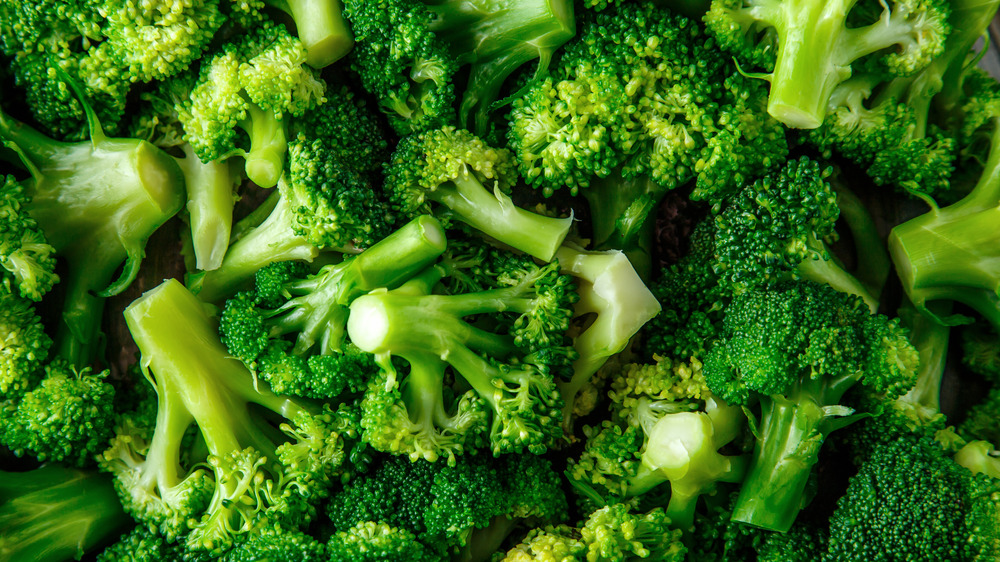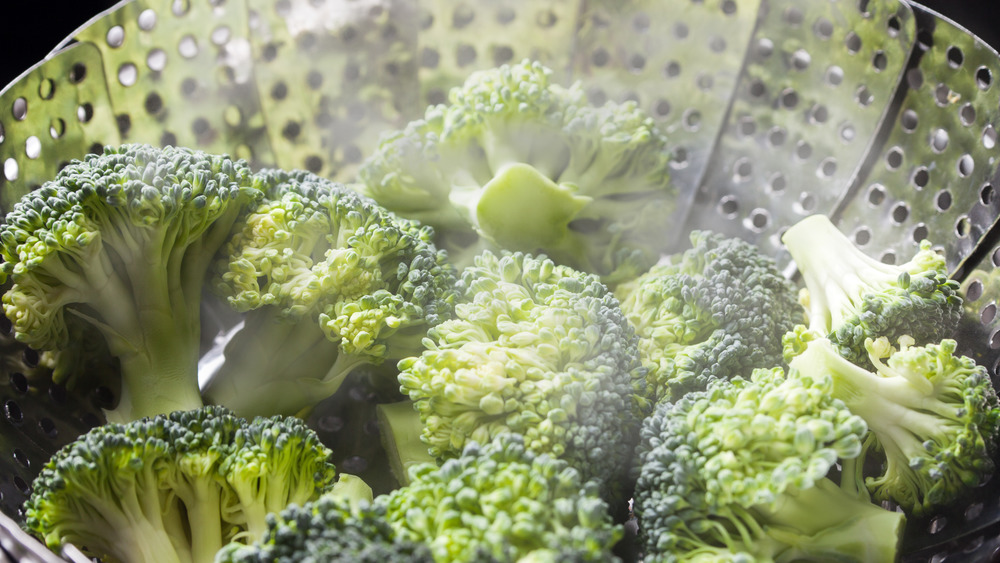Boiled Broccoli Vs. Steamed Broccoli: Which Is Better?
There's no denying that broccoli is incredibly healthy for you: It contains good-for-you vitamins (like Vitamin K, A, and B), antioxidants, digestion-improving fiber, protein, and more. But according to a 2009 study published in the U.S. National Library of Medicine, not all broccoli is created equal. Or rather, not all cooked broccoli is created equal. Based on the study's findings, CNN reports that how you cook the popular green veggie can make a big difference not only in how it tastes but also in how nutritious it is.
Two of the most popular methods of cooking broccoli are steaming (which uses heat to cook the veggie) and boiling (which uses hot water). Which one is better? While it largely — pardon the pun — boils down to personal preference in terms of taste and texture, there is some science behind which method is ideal if you're concerned with the nutrient value of the fibrous green vegetable.
Steamed broccoli is more nutritious
The 2009 study found that broccoli retained the most nutrients when it was steamed vs. boiled (or microwaved or stir-fried). Similarly, another study that examined other types of veggies found that they lost about 50 percent of their antioxidants when boiled as opposed to steamed, CNN says. That's due to the fact that when broccoli is boiled, the hot water can leach some of the vitamins and minerals out of it. Unless you're drinking the water that your broccoli was boiled in (which many of us are not), you're missing out on those nutrients.
On the other hand, when it's steamed, the broccoli doesn't come into contact with water so it retains more of those healthy antioxidants. Bonus: Not only is steamed broccoli healthier, but it might taste better, too. Livestrong reports that a 2010 study found that more people prefer the taste, flavor, and texture of steamed broccoli over its boiled counterpart.

